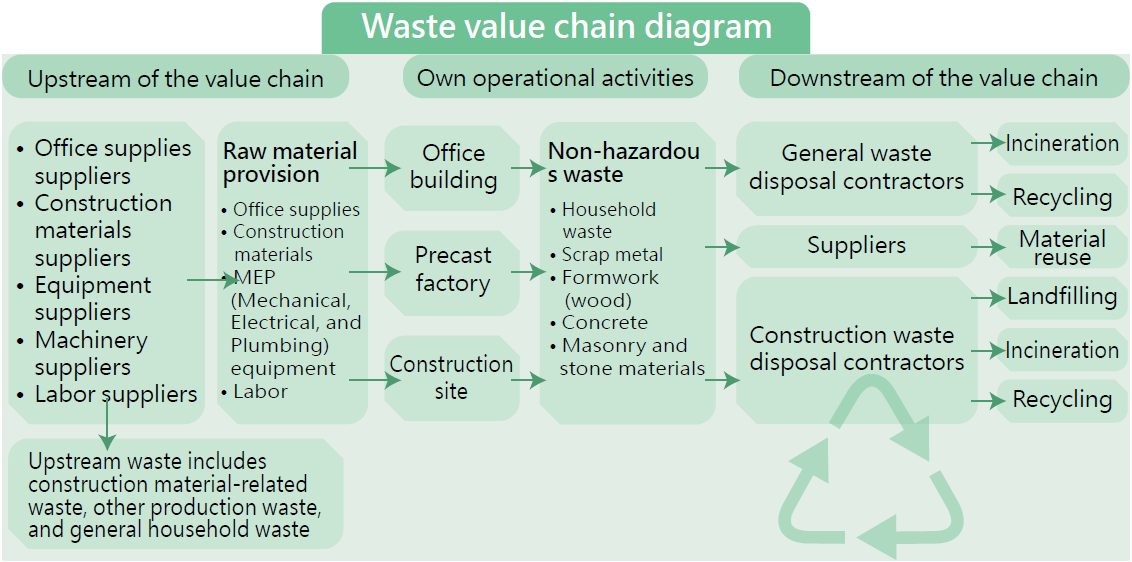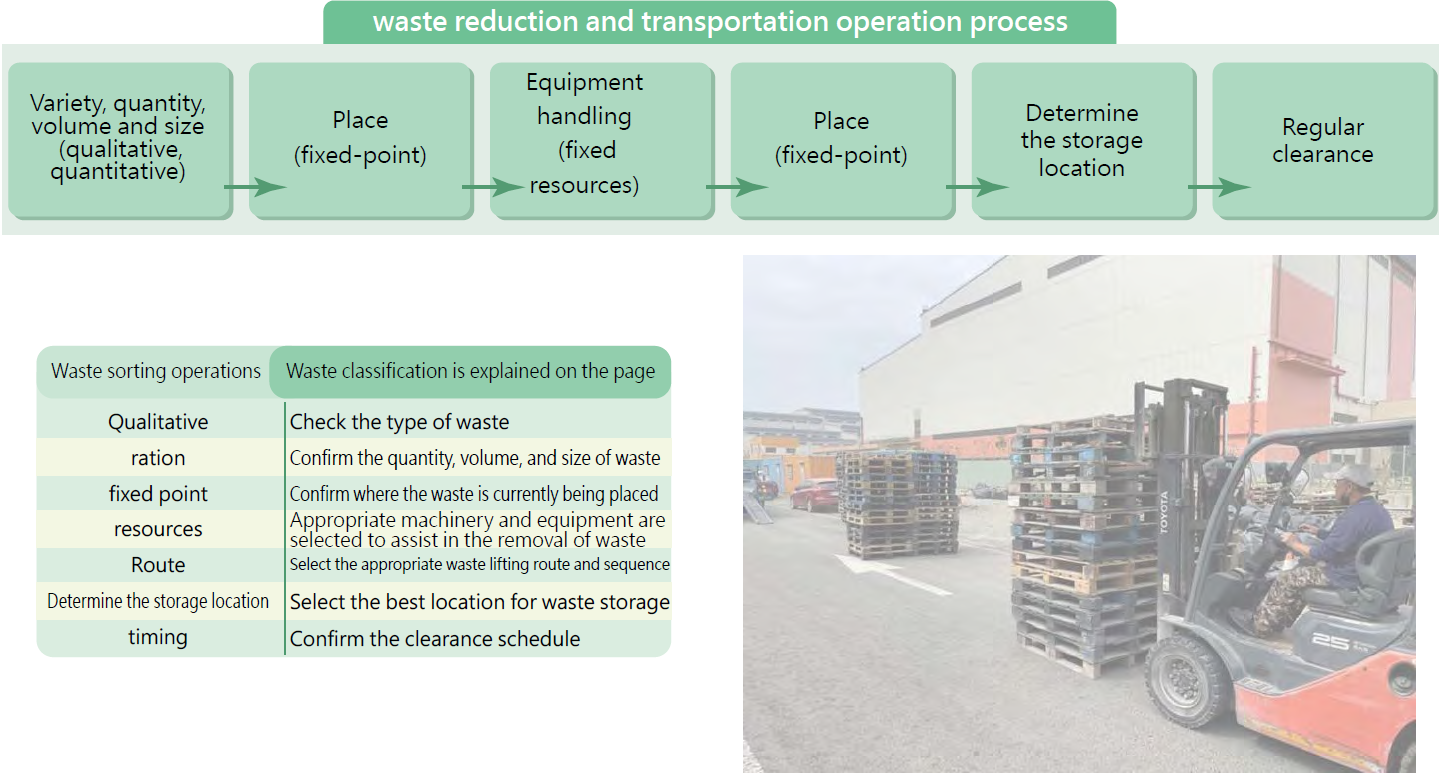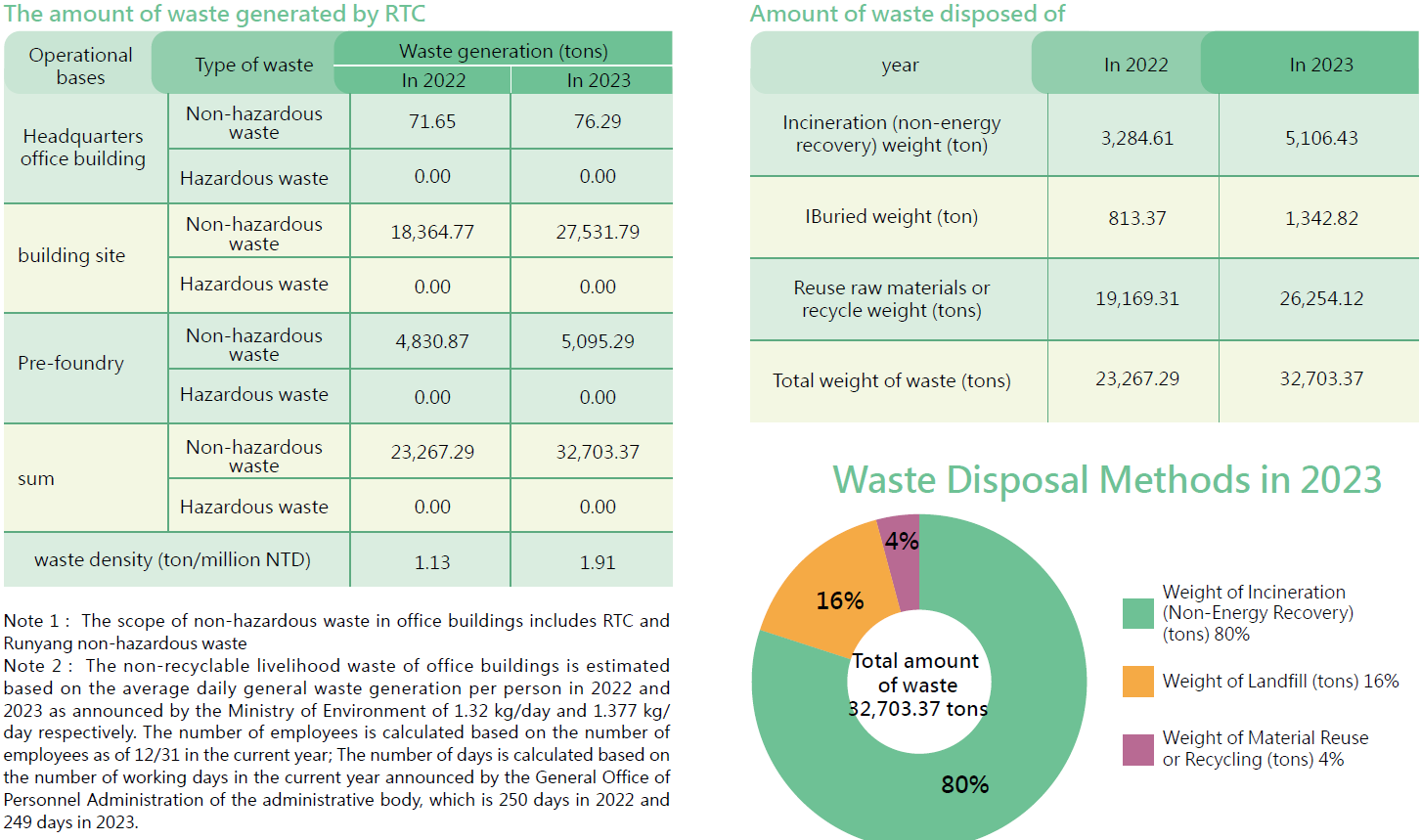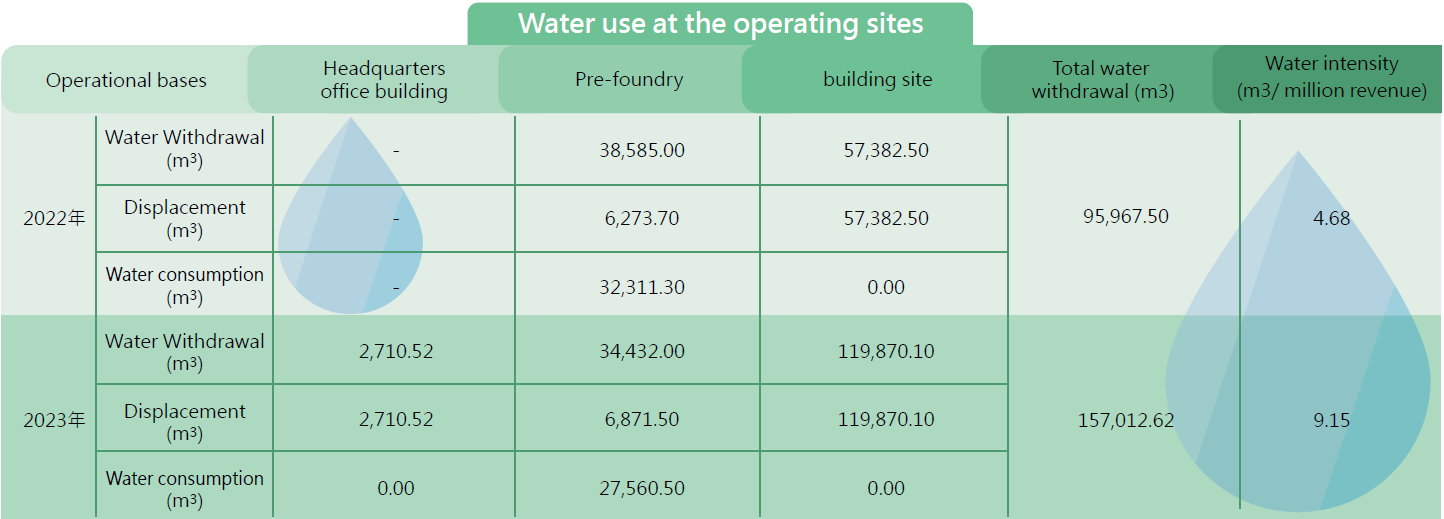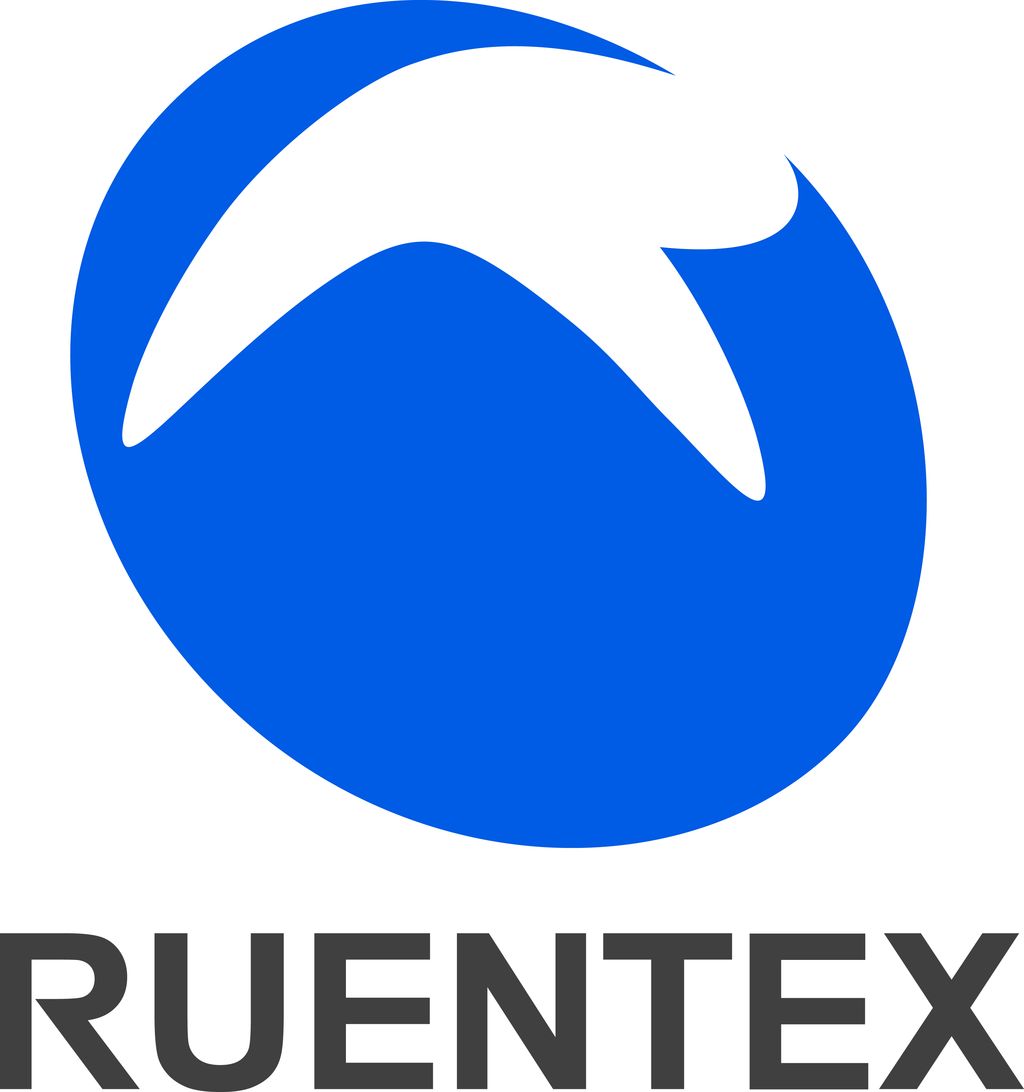The wastewater of RTC Headquarters Office Building is a general domestic wastewater, which is discharged through the sewage and sewer system legally, and does not cause any negative impact on the surrounding environment and water sources. Yangmei precasting plant is a business wastewater, which needs to control the discharge of sewage in accordance with the Water Pollution Prevention and Control Law, and set up process wastewater treatment facilities to meet the “discharge water standard”. At the beginning of 2023, due to the violation of the Water Pollution Prevention and Control Law by the
operation wastewater flowing into the rainwater ditch in the factory and discharged to the outside of the plant through the runoff wastewater discharge outlet, RTC Research plans to separate the rainwater from the sewage and set up a new centralized treatment plant to treat it to improve water pollution negligence. In addition, in terms of construction sites, the construction wastewater needs to be treated in accordance with the construction site runoff wastewater pollution reduction plan approved by the Environmental Protection Bureau. RTC manages the wastewater generated on the construction site, and treats it at the construction site after collection, or outsources treatment to meet the discharge water standards before discharging.
In 2023, the toilets in the headquarters office building will be replaced with sensor-activated faucets, which is not only more in line with modern facilities, but also can effectively save water and reduce water waste. At the end of the year, the pantry and toilet at the bayberry pre-casting plant were replaced with water-saving faucets, which improved the comfort of the working environment and reduced the consumption of water resources. In the future, RTC will continue to invest in water-saving actions related to water reduction and rainwater recycling in pre-casting plants. Among them, through the establishment and operation of a recycling system, it will be possible to maximize the use of water resources at the construction site, realize the recycling and reuse of water resources, and reduce the dependence on natural water sources.
